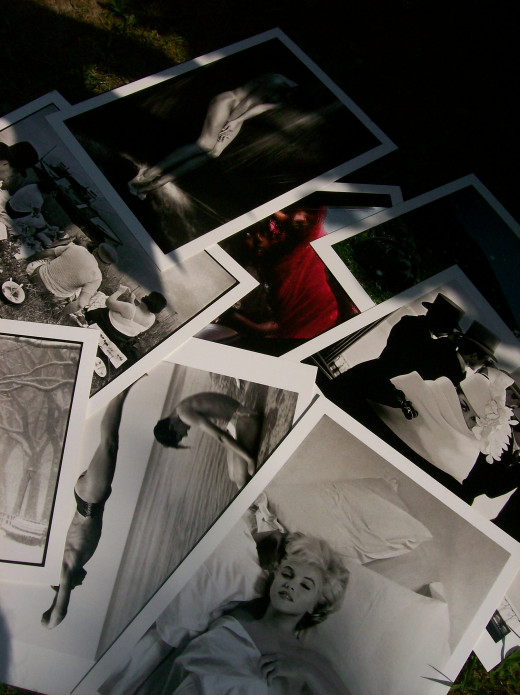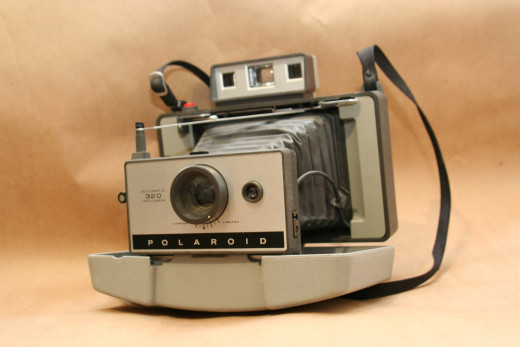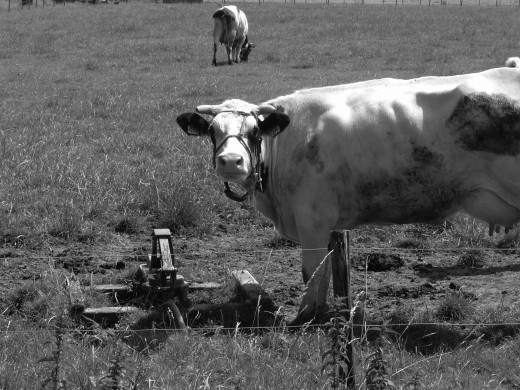Use your Memories to Write Memorable Fiction and Poetry

A woman showed up at my front door late one evening with a stack of legal pads filled front and back with writing. “This is my life story,” she told me. “Can you write it for me?” I asked her, “Who are you?” She told me her name. “Have you had a particularly rough life?” She said no. “Have you had a particularly exciting life?” She said, “Well, some of it has been exciting, at least I thought it was.” I asked her age because I am generally rude when people bring handwritten “manuscripts” to my door late at night, and she told me to guess. I guessed thirty. I was only off by two years. She was sad.
After urging her to type it first, I told her, “Unless you’re famous, infamous, or had a particularly exciting or tragic life, your memoirs or autobiography will not be published by a publishing house in the United States. We’re a strange country that way. We publish the extremes in our society, the highs and lows, so to speak, and these extremes are rarely representative of ordinary folks like us. Parts of our lives, however, are amazing, and it’s up to the astute writer to put these amazing pieces of our lives into the puzzle of our fiction.”
She blinked at me and said, “What are you trying to tell me?” I suggested that she fictionalize her life. She kept blinking. “Create someone else to live the most exciting parts of your life,” I explained. “Put another person in your shoes, and in doing so, you will create a realistic novel that readers will enjoy.”
In essence, I told her to fictionalize pieces and moments of her life. I believe these pieces and moments should come into play whenever you write whatever you write. Most writers do it consciously and even unconsciously. It often spills out without us knowing it. It’s that time-honored idea of “writing what you know” taken to the level of “writing who I am.”
I do it all the time. I let my characters re-experience moments from my life in poems, short stories, and novels, and the situations usually turn out much better than they really did for me. Writers don’t have to reinvent the wheel or start from scratch with each new work when they can take the wheels of their own lives and roll these memory wheels into their creative writing. Fictionalizing your life can help your writing immensely, and you know you will always have plenty of ammunition to work with.

How to fictionalize your life
1) Make a list of your important life experiences.
Don’t worry if you think you’d never use these experiences in a longer work. Some memories are short enough to use in poetry and short stories. If you’re stumped or have a bad memory as I do, look through old photograph albums. My family took many of pictures with “Brownie” and Polaroid cameras, so I can never fully escape my childhood. Each picture you see is a moment that can be described, explored, and used in your work. Diaries, journals, letters, mementos, the stories people love to tell about you—all can be mined for use in your writing. Take a walk around your space and look at the strange objects you've kept. Why do you have them? What meaning do these objects have? I have a stone I picked up a hundred years (really forty) ago, and after a dozen moves, I honestly can’t remember what this stone is supposed to represent. When I do, I know it will make its way into a novel.
Many of your important experiences will be “firsts.” Your first crush, kiss, love, job, move, roommate, significant other, broken bone, date, pet, tragedy, or triumph could become an entire chapter in a novel or a stand-alone short story. Births, deaths, trips, friends, enemies, school days, lovers, exes—all can and should come into play if you let them play across the page. I’ve always believed that if you could survive your childhood, you could write for years. A word of warning—once you start this list, you may be writing for a while, so give yourself some time. You have had many important life experiences, and it will take time to list them all.
2) Once you’ve made this list, attempt to expand one of these memories.
Pick a memory at random. If you run out of things to write quickly, it’s probably a memory to file away for another day. If you take off and can’t stop writing, this is the stuff that people will want to read because it obviously interests you. Summarize what happened to you, map out what happened to you, expand on what happened to you—and then have it happen to a character or several characters within your writing. When you do this, you will be amazed at how often you put your characters through events readers readily recognize. “I remember my first crush,” they will say as they read your work. “It wasn’t anything like this, but I remember the feeling.” Your memories, then, will help you connect strongly to your reader, and that’s crucial to developing lifelong fans of your work.

3) Have fun "fixing" your past.
Maybe one of your firsts didn’t work out so well. Maybe it ended in disaster. Maybe it’s something you would like to forget forever. Don't do it! This is your chance to fix it.
My first experience with dancing was horrific. I had a sheltered childhood, I had never danced, I didn’t have a great deal of rhythm, and the young lady who asked me to dance could really dance. Imagine me as the Maypole and her as the whirling ribbons or me as a roundabout in London and her as the traffic whizzing around me. I didn’t know what to do with my hands, arms, feet, or torso, so I stared at my shoes and did the statue dance. The song (“Colour my World”) ended, and that was that. Although it was dramatic to me at the time, I didn’t think it would be dramatic enough for my readers, so I played with it. I fixed it. I took that memory and put a character through the same situation in “Shining On,” and I believe it has a much better ending. In other words, I took a forgettable moment from my childhood and tried to make it unforgettable. I put the feeling I had at the time into my character’s brain, and I let him be the hero I wasn’t.
Whatever memory you put a character through, don’t be afraid to embellish and embroider for your readers’ enjoyment. Maybe you can add all the things you should have said or wanted to say. You can make yourself taller, faster, stronger, smarter, more attractive—all the things I am not. If you do a good job, readers will ask you, “Did that really happen to you?” I advise you always to say, “Of course, and it happened precisely that way.”
Sometimes I write these memories as they actually were, warts and all, and sometimes I soften them. Sometimes my memories go off on a completely different tangent—and I let them go—but I always start from a point of reality, as if to say, “This is not exactly how it happened, but it is close.” This will give your writing verisimilitude, that truthful, deep, “it could have happened” flavor.
Painful realities are hard to write, even for a character to go through, but it makes good drama. Death, near death, and death-defying experiences, near misses, close calls, and the unexpected miracles of daily life—all should be in play whenever you write anything. Try not to block pain. Readers recognize it and can empathize.

Take your writing to the nth degree
Perhaps you think that your life has been boring. Every single moment of it? “Well,” you say with a sideways glance and a slight smile, “there was this one time when …”
Write out that one time, and write it out to the nth degree. Transform it into a glorious story in nine-part harmony with Tchaikovsky’s Overture of 1812 blasting in the background. Work that memorable moment so hard that it cries for mercy.
For example, my friends and I went cow-tipping at Purdue University. Please don’t send hate mail. I was young, dumb, and impressionable. It was my first experience with cow-tipping, and I was a lightweight. I bounced off the cow, and the cow seemed to roll her eyes at me. We saw flashlight beams crisscrossing the field, we ran away, … and that was that. The end.
In order to take this memory to the nth degree, I have to amplify it a little. In rewriting this experience, I have my friends trick me into trying to tip over a bull, the crisscrossing beams are the police, and I am arrested for trespassing and animal cruelty. Upon my conviction, Purdue University strips me of my bowling scholarship (they do have those), someone spray-paints “Cruel to Cows!” on my car, my parents force me to become a vegetarian as penance, and my girlfriend calls me an udder failure and buries my class ring somewhere in a cow field.
The original scene itself was exciting, but if I wrote it as it actually happened, it would fall flat as I actually did. I don’t want any reader ever to say, “So?” or “And?” With some improvements and embellishments, I know I can make that scene shine.
Take for example my first time drinking alcohol. We squeezed six couples into a station wagon (the original SUV) and sneaked off to the Fraternal Order of Police baseball field in West Lafayette, Indiana, to sip a little champagne before prom. As soon as the little Dixie cup hit my lips, I saw flashing red lights. I dropped the cup. The police officer who surprised us cut us a break, though he did give us a long lecture about the evils of drinking. We poured out the rest of the champagne, loaded up, and went shakily to prom. The first time I sipped champagne, I was nearly arrested wearing a light blue tuxedo with ruffles. What could I possibly add to this scene to liven it up? Isn’t this scene finished?

I really haven't starting writing this scene. I need to describe in detail the fussing of the young ladies as they “fixed” their dresses after the cramped ride in the station wagon. They were not happy we were carpooling for prom. How did they think we could afford to take them? I need to describe the muttered curses from the gents as the police officer strode up with his flashlight and shined it into each of our faces. I need to delve into the intense angst I felt because I thought I would soon have to explain to my teetotaler parents why I felt I needed to drink some champagne. I can still hear one of the young ladies saying, “Please don’t tell our parents,” and I can see our driver hyperventilating because he thought he was about to lose his license. This scene is getting closer to an “nth” moment, but with a little more work, I could make it indelible in my readers’ minds. This scene, then, could become a short story or a chapter in one young man’s life. “To the nth degree!”—let this be your motto with every memory you include in your work.
Pieces of my life are in every poem, short story, and novel I’ve ever written. My first novel and its sequel tell the story of my courtship and marriage. My second novel tries to “solve” a difficult problem my sister had. My third novel chronicles a great deal of my childhood on Long Island, New York. Half my novels take place in southwest Virginia, my first true home. Two of my novels take place in part in Ontario, Canada, my ancestral home.
You can and should use who you are, what you’ve survived, and where you are to write brilliant, thrilling fiction and poetry. Whenever you feel blocked or stymied by the blinking cursor on the screen, open a photo album, go through those old letters, or reopen that dusty diary.
Your life and your past can truly be the key to your writing future.





